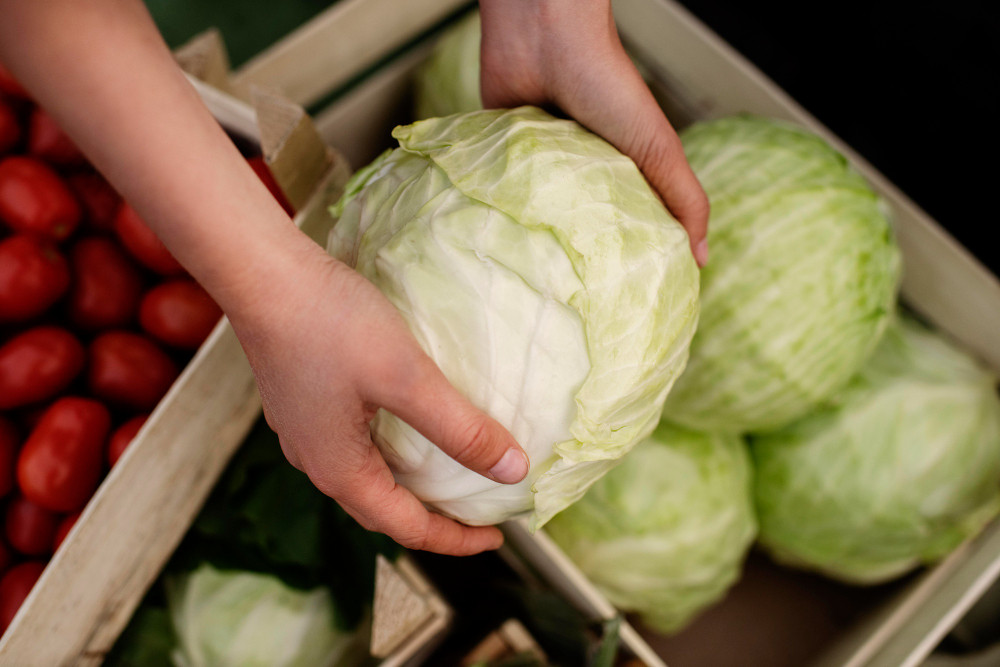Selama bulan Ramadan, seluruh umat Islam di dunia menjalankan ibadah puasa dari fajar hingga ke senja. Perubahan pola makan yang mendadak ini dapat memengaruhi sistem pencernaan dan menyebabkan masalah seperti sembelit.
Sembelit biasanya ditandai dengan kesulitan buang air besar, tinja yang keras, rasa tidak nyaman atau sakit saat buang air besar. Sembelit saat berpuasa juga terkadang menyebabkan perasaan kembung karena gas terperangkap di dalam usus.
Penyebab Sembelit saat Berpuasa
Selain perubahan pola makan, ada beberapa faktor yang secara tidak langsung dapat menyebabkan sembelit selama puasa. Beberapa faktor tersebut di antaranya:
Kurangnya asupan serat
Serat sangat penting untuk menjaga pencernaan yang sehat, membantu memperlancar gerakan usus, serta mempertahankan keseimbangan air dalam tinja yang melunakkannya. Kurangnya serat dalam pola makan selama puasa akan menyebabkan sembelit dan tinja menjadi lebih kering serta sulit untuk dikeluarkan.
Kurangnya asupan buah dan sayuran
Buah-buahan dan sayuran adalah sumber alami serat yang dapat membantu pencernaan yang sehat. Selama bulan puasa, orang mungkin tidak mengonsumsi jumlah buah dan sayuran yang cukup baik selama waktu berbuka maupun sahur sehingga menyebabkan sembelit.
Pilihan menu takjil yang dikonsumsi saat berbuka cenderung mengarah pada makanan manis, gorengan, makanan tinggi lemak dan makanan yang rendah serat. Sedangkan pilihan menu sahur cenderung pada makanan siap saji yang juga rendah serat. Dengan perubahan pola diet ini, tentu saja sembelit menjadi sesuatu yang umum dialami selama berpuasa.
Baca Juga: Langsung Merokok Setelah Berbuka Puasa Itu Bahaya, Lo!
Kurangnya asupan cairan
Berpuasa tentu saja harus menahan lapar dan haus, namun kebutuhan cairan tubuh tetap harus dicukupi. Selama berpuasa, Anda bisa memenuhi kebutuhan cairan tubuh melalui air minum, jus buah, makanan berkuah, buah-buahan tinggi kandungan air yang dikonsumsi saat berbuka atau sahur.
Asupan cairan ini dapat membantu melunakkan tinja sehingga lebih mudah dikeluarkan.
Tips Mencegah Sembelit saat Berpuasa Ramadan
Jangan biarkan sembelit mematahkan motivasi Anda dalam menjalani puasa Ramadan. Berikut adalah beberapa tips untuk mencegah sembelit selama berpuasa Ramadan:
- Memilih makanan yang kaya serat seperti buah-buahan, sayuran, biji-bijian utuh, dan kacang-kacangan selama waktu berbuka dan sahur. Jangan lupa, serat adalah asupan yang dibutuhkan untuk memperlancar pergerakan usus dan efektif mencegah sembelit.
- Pastikan untuk membagi porsi minum yang cukup selama waktu berbuka dan sahur untuk mencegah dehidrasi dan sembelit. Hindari minuman yang mengandung kafein atau gula tambahan yang dapat meningkatkan risiko dehidrasi.
- Perhatikan porsi makan Anda, dan hindari makan berlebihan baik saat berbuka maupun sahur. Atur komposisi dan porsi makan agar tidak terlalu banyak atau terlalu sedikit, yang dapat memengaruhi sistem pencernaan.
Baca Juga: Mengalami Diare saat Sedang Berpuasa, Ini yang Sebaiknya Dilakukan
- Makanan berlemak seperti gorengan lebih sulit dicerna dan dapat memperlambat gerakan usus. Cobalah memilih makanan yang lebih ringan dan mudah dicerna saat berbuka dan sahur seperti buah-buahan segar, sayuran hijau, gandum utuh, tahu, ikan, ayam tanpa kulit, sup kaldu rendah lemak.
- Olahraga ringan setelah berbuka dapat membantu merangsang gerakan usus dan memperlancar proses pencernaan. Anda bisa menambahkan berjalan kaki 15-30 menit setelah berbuka agar meningkatkan peredaran darah ke area perut yang dapat memperlancar pencernaan dan mencegah sembelit.
- Menjaga keseimbangan elektrolit selama puasa Ramadan juga sangat penting untuk kesehatan Anda. Elektrolit seperti kalium dan magnesium bisa ditemukan dalam pisang, air kelapa, kurma, sayuran hijau, kacang-kacangan dan biji-bijian.
Jika selama berpuasa Anda mengalami masalah sembelit yang berkepanjangan atau parah, sebaiknya konsultasikan keluhan Anda dengan ahli gizi atau dokter untuk mendapatkan saran dan perawatan yang sesuai. Anda juga bisa memanfaatkan layanan konsultasi kesehatan dengan mengunduh aplikasi Ai Care melalui App Store atau Play Store.
Mau tahu informasi seputar nutrisi, makanan dan tips diet lainnya? Cek di sini, ya!
- dr. Monica Salim
Zawn Villines (2023). What is the connection between intermittent fasting and constipation?. Available from: https://www.medicalnewstoday.com/articles/intermittent-fasting-constipation
Dua Aldasouqi, RDN (2024). Fasting Can Lead to Constipation During Ramadan—These Tips Can Help. Available from: https://www.health.com/condition/constipation/fasting-constipation-during-ramadan
Hannah Nichols (2023). Constipation during Ramadan: Tips for digestion and more. Available from: https://www.medicalnewstoday.com/articles/constipation-during-ramadan
Cleveland Clinic (2023). Constipation. Available from: https://my.clevelandclinic.org/health/diseases/4059-constipation
John Hopkins Medicine. Foods for Constipation. Available from: https://www.hopkinsmedicine.org/health/wellness-and-prevention/foods-for-constipation
Muslim Aid Serving Humanity (2024). Ramadan 2024: The Importance of Water. Available from: https://www.muslimaid.org/media-centre/blog/ramadan-importance-of-water/
Kris Gunnars, BSc (2023). 22 High Fiber Foods You Should Eat. Available from: https://www.healthline.com/nutrition/22-high-fiber-foods
MaryAnn De Pietro, CRT (2024). 11 foods that are easy to digest. Available from: https://www.medicalnewstoday.com/articles/319947











